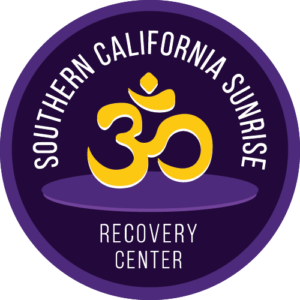When someone you care about is battling alcoholism, the challenges and emotions involved can feel overwhelming. According to the National Institute on Alcohol Abuse and Alcoholism, approximately 29.5 million Americans suffer from alcohol use disorder (AUD), highlighting the critical need for effective support strategies. At Tres Vistas Recovery, we recognize the difficulties faced by both those struggling with substance abuse and their loved ones. In this section, we aim to provide you with a comprehensive guide on offering meaningful support that can significantly impact a loved one’s journey to recovery. Alcoholism is a complex condition characterized not just by the physical compulsion to drink but also by a psychological dependency. This dual challenge can make recovery particularly difficult. Awareness of this complexity is crucial as you help your loved one navigate the path to sobriety.
Educate yourself about alcohol addiction’s signs, symptoms, and impacts. This knowledge prepares you for the challenges ahead. Have a conversation with your loved one when they are sober, in a private setting, and approach them empathetically to avoid defensiveness. Suggest the benefits of professional treatment, explaining the options available at Tres Vistas Recovery to make the process clearer and less intimidating. Support your loved one consistently, not just initially; this includes attending therapy sessions with them and helping them manage triggers. Remember, supporting someone with an alcohol addiction can be taxing. Ensure you also receive support through counseling, joining support groups, or practicing self-care. Stay informed and compassionate can significantly aid your loved one’s recovery journey.
Understanding Alcoholism
Alcoholism, medically referred to as alcohol use disorder (AUD), is a complex condition characterized by an uncontrollable urge to consume alcohol despite adverse consequences. It encompasses both physical dependency, where the body manifests withdrawal symptoms without alcohol, and psychological dependency, where the desire to drink overrides all other priorities.
Globally, alcohol misuse is a major public health challenge. According to the Centers for Disease Control and Prevention (CDC), about 178,000 people die from alcohol-related causes annually in the United States, making it the third leading preventable cause of death. The pervasive impact of alcoholism not only affects the individual’s health but also has significant social and economic repercussions, including lost productivity, strained relationships, and extensive healthcare costs.
Key Signs of Alcoholism
Recognizing the signs of alcoholism is crucial for early intervention and effective treatment. Key indicators include:
- Strong Cravings for Alcohol: Persistent thoughts about drinking that interfere with daily activities.
- Inability to Control Drinking: Once started, finding it impossible to stop drinking or cut down.
- Withdrawal Symptoms: Physical symptoms like nausea, sweating, shakiness, and anxiety that appear when alcohol consumption is stopped.
- Neglect of Responsibilities: Recurrent alcohol use, failing to fulfill major roles at work, school, or home.
- Continued Use Despite Negative Consequences: Persistent drinking even when it’s causing health problems, damaging relationships, or leading to legal issues.
- Physical Indicators: Learning how to spot an alcoholic face can be a pivotal skill for families and friends. This involves noticing signs such as persistent facial redness, swelling, or other distinctive features that often accompany long-term alcohol abuse.
Understanding these signs helps in recognizing alcoholism as a serious health condition that requires a comprehensive treatment approach, including medical intervention, counseling, and support systems. Awareness and education are critical in helping individuals and families navigate the challenges of this disorder and seek appropriate care.
Helping an Alcoholic
Effective Communication Strategies
Effective communication is critical when supporting someone with alcohol addiction. Approach conversations with empathy, expressing concerns without casting judgment. Utilize “I” statements to share your feelings and avoid “you” statements which can provoke defensiveness. For example, use phrases like “I feel concerned when…” instead of “You always…”. Optimal timing is also crucial; ensure discussions occur when your loved one is sober in a quiet and private environment. This setting increases the likelihood of a productive conversation where you can clearly express your support for seeking professional help.
Encouraging Professional Help
Encouraging a loved one to seek professional help is a pivotal step in their recovery. Tres Vistas Recovery offers a supportive environment where individuals can address their addiction with tailored guidance. Highlighting the benefits of outpatient programs can be particularly persuasive, as these allow individuals to balance treatment with daily responsibilities. Such programs are effective; research shows that participants in structured outpatient treatment programs are as effective as inpatient treatment.
Support Systems and Group Therapy
Establishing a robust support network through family therapy and support groups is essential. Tres Vistas Recovery hosts group therapy sessions that provide a platform for sharing experiences and learning coping strategies within a supportive community. These groups help alleviate the feeling of isolation commonly experienced by those with alcoholism, reinforcing that recovery is a shared journey.
Relapse Prevention
Relapse is often a part of the recovery process. At Tres Vistas Recovery, we emphasize the importance of a comprehensive relapse prevention plan. This strategy includes identifying triggers, creating effective coping mechanisms, and maintaining continuous support through therapy and support groups. Such planning is essential, as it equips individuals with the tools to manage challenges proactively, significantly reducing the risk of relapse.
Addressing Co-occurring Disorders
Many individuals struggling with alcoholism also deal with co-occurring mental health disorders such as depression or anxiety. It is crucial to adopt an integrated treatment approach that addresses these underlying issues alongside the addiction. Our programs at Tres Vistas Recovery are designed to provide holistic care, treating both the addiction and any accompanying mental health conditions, which is critical for a sustainable recovery.
Lifestyle Changes and Recovery
Significant lifestyle changes are integral to the recovery process from alcoholism. Encouraging participation in exercise, hobbies, and alcohol-free social interactions can help build a healthy and satisfying life. Patience and continuous support are vital, as recovery is not a destination but a continuous journey of growth and adaptation.
Implementing these strategies provides substantial support to those struggling with alcoholism, guiding them toward a healthier and more stable future.
The Role of Outpatient Treatment
Outpatient treatment at Tres Vistas Recovery provides a flexible yet structured approach for managing alcoholism. This type of program is particularly beneficial for those who have responsibilities at home or work that they cannot leave for an extended period. Our programs include individual therapy, group sessions, and educational workshops that address both the physical and psychological aspects of addiction.
Outpatient Alcoholism Treatment – Tres Vistas Recovery
Helping an alcoholic, especially someone close to you, requires patience, understanding, and active support. At Tres Vistas Recovery, we are dedicated to providing the care and support needed for individuals to overcome alcoholism and rebuild their lives. If you or someone you know is struggling with alcohol use disorder, reach out to us. Remember, the journey to recovery starts with one step forward.
One specific concern often overlooked is the interaction between medications and alcohol. For instance, the combination of Ambien and alcohol can be particularly dangerous, leading to severe side effects such as excessive sedation, confusion, and even risk of overdose. It’s crucial for individuals taking any medications to be fully aware of the risks of mixing alcohol with prescription drugs, including Ambien.
For more information on our programs or to get advice on how to support someone with an alcohol addiction, please visit our website or contact our expert team at Tres Vistas Recovery. Together, we can pave the path to a healthier, alcohol-free life.

Tracey Kane is an Associate Marriage and Family Therapist and Assistant Clinical Director at Tres Vistas Recovery. With over 11 years of experience in the field of addiction treatment, Tracey has dedicated her career to helping individuals struggling with substance abuse and mental health issues.












